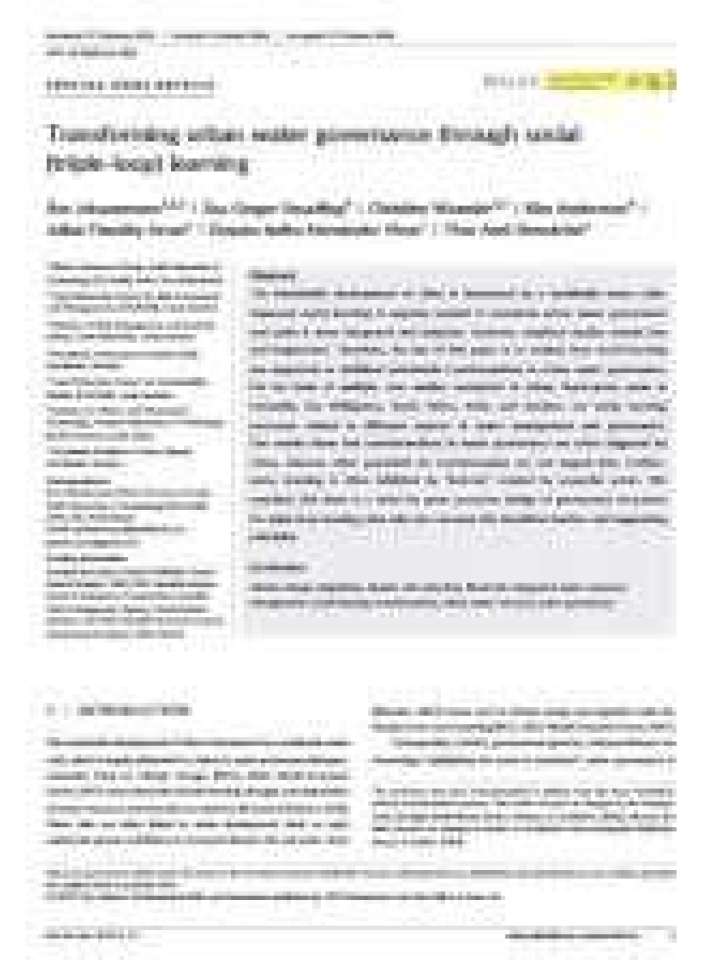Transforming urban water governance through social (triple‐loop) learning
The sustainable development of cities is threatened by a worldwide water crisis. Improved social learning is urgently needed to transform urban water governance and make it more integrated and adaptive. However, empirical studies remain few and fragmented. Therefore, the aim of this paper is to analyse how social learning has supported or inhibited sustainable transformations in urban water governance.
On the basis of multiple case studies conducted in urban, flood‐prone areas in Colombia, the Philippines, South Africa, India, and Sweden, this paper studies the learning processes related to different aspects of water management and governance.
The results show that transformations in water governance are often triggered by crises, whereas other potentials for transformation are not tapped into. Furthermore, learning is often inhibited by “lock‐ins” created by powerful actors.
The paper concludes that there is a need for more proactive design of governance structures for triple‐loop learning that take into account the identified barriers and supporting principles.
Explore further
